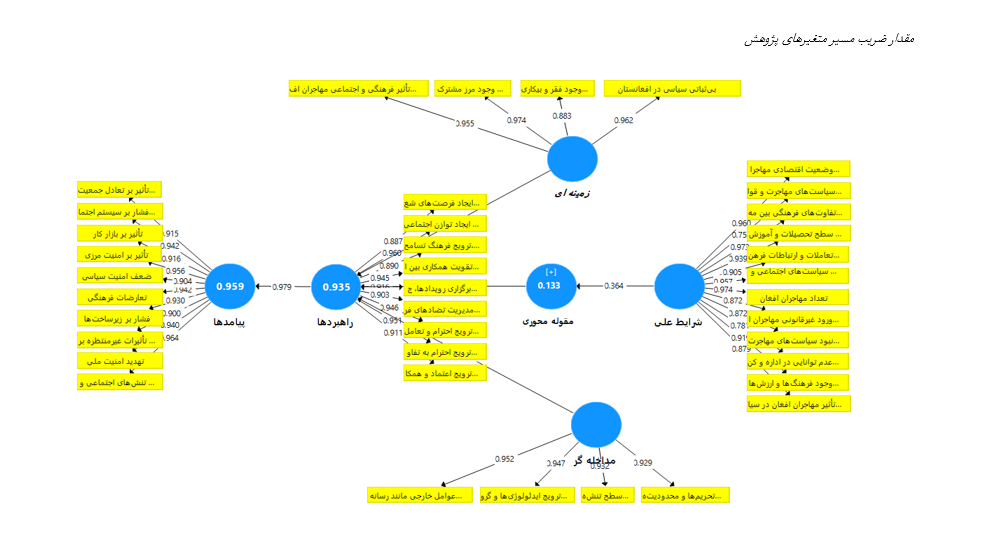Analysis and Evaluation of the Consequences of Afghan Immigrants' Acculturation and Deculturation on Iran's Political-Social Security
Abstract
The aim of this study was to examine the consequences of Afghan immigrants' acculturation and deculturation on Iran's political-social security. A mixed-method (qualitative-quantitative) approach was chosen for the research. The qualitative part of the study was conducted through semi-structured in-depth interviews with 15 experts from organizational and academic sectors, using purposive sampling. In the quantitative section, a sample size of 384 individuals was determined based on Cochran's formula. Data collection tools included interviews in the qualitative phase and a questionnaire based on the research model, containing 194 items on a 5-point Likert scale in the quantitative phase. The data analysis method was grounded theory in the qualitative section and partial least squares (PLS) in the quantitative section. The findings indicated that, in the qualitative section, after three stages of open, axial, and selective coding, the research model was presented with six main categories and 40 subcategories. Quantitative results showed that causal conditions influenced the central category, while intervening conditions, contextual conditions, and the central category impacted strategies. Additionally, strategies affected the outcomes of Afghan immigrants' acculturation and deculturation. Finally, Afghan immigrants' acculturation and deculturation, influenced by causal conditions, contextual conditions, intervening conditions, and actions and interactions, resulted in outcomes including effects on population balance and resources, pressure on the social system and public services, impacts on the labor market, effects on border security, political security weaknesses, cultural conflicts, pressure on infrastructure, unexpected impacts on national economic development, national security threats, social tensions, and negative interactions.
Downloads








